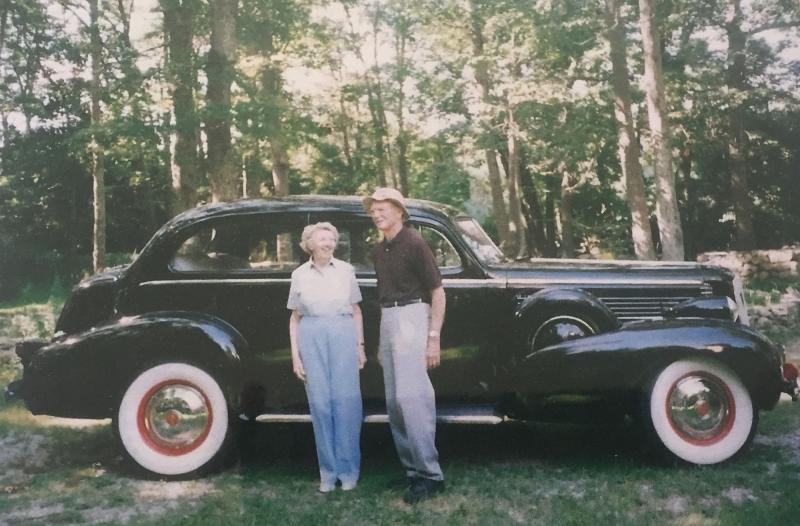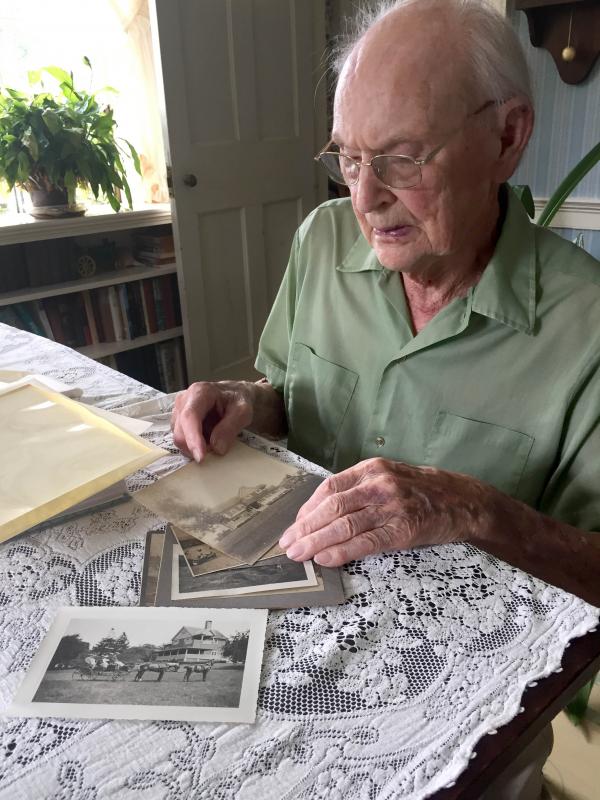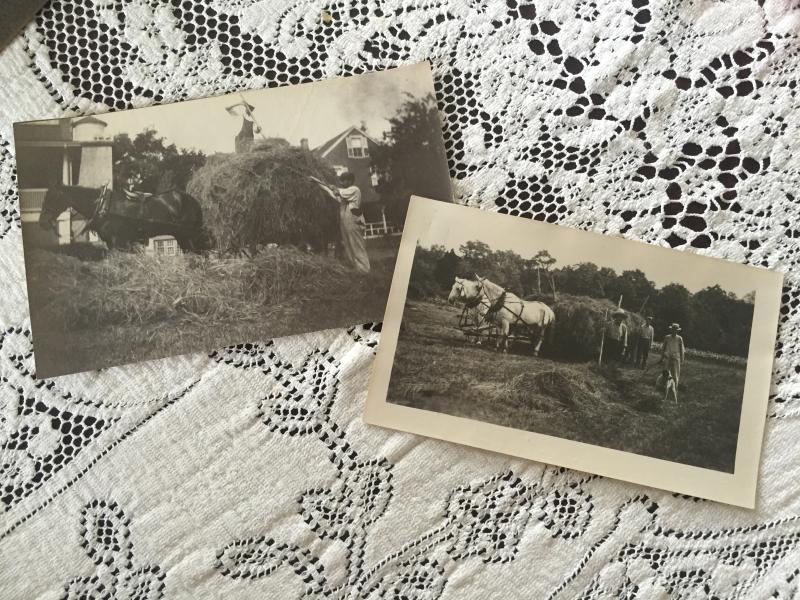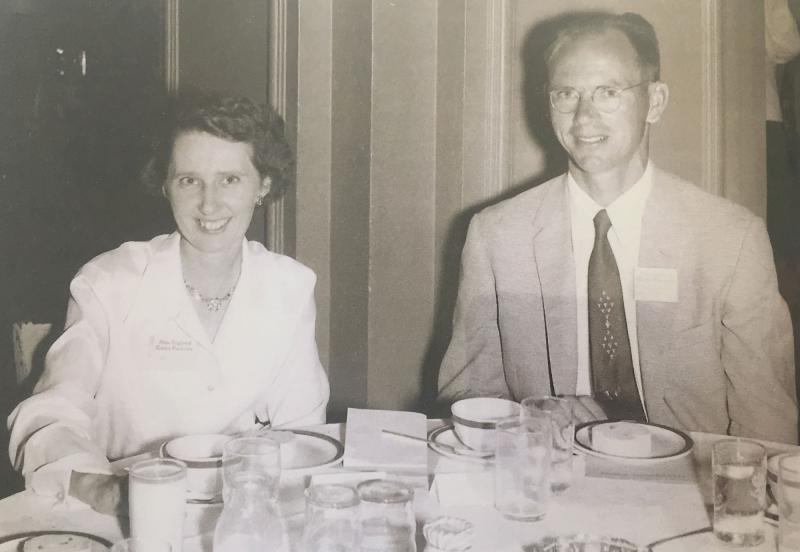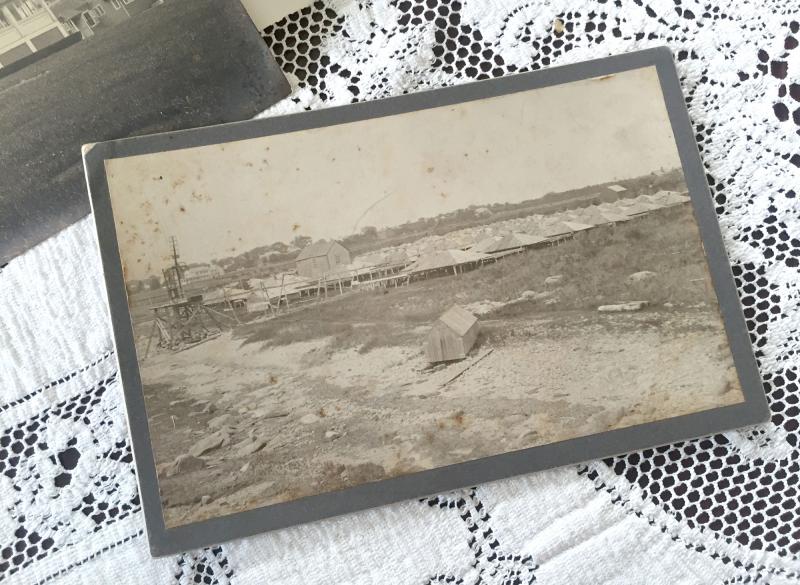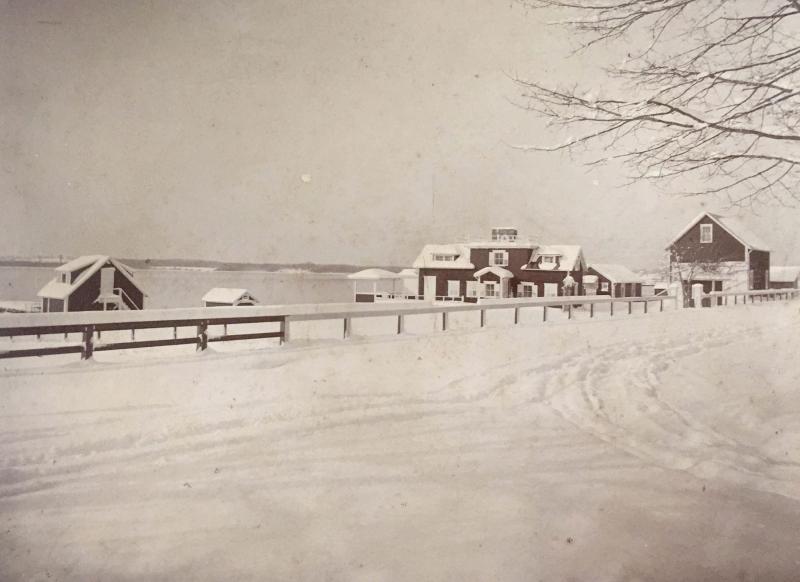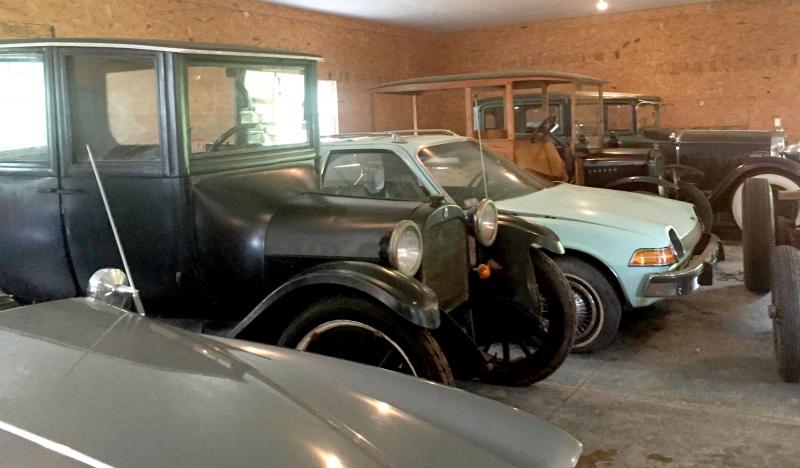Meet Horace Wildes: history buff, car collector, farmer
The things in Horace Wildes’ home on Jordan Road aren’t as old as the property itself, which dates back to 1685, but they’re mostly older than the man who lives there. An oil painting of Nancy Way Sistare — Wildes’ great-great-grandmother — adorns a living room, while four whale-oil lamps from the 1800s sit on his mantle. Nearly everything is inherited, except for the car collection in his garage.
At 98 years old, maintaining his collection is just one way Wildes passes the time. Over the summer, he took his 1918 Model T to a shop that rebuilds engines. It’s one of eight cars he keeps in his garage, alongside a 1962 Jaguar sedan, a 1975 AMC Pacer, and a 1929 Lincoln. The rest are scattered around the nearly 18-acre lot that he still mows himself.
“I’ve always been interested in automobiles, machinery, that sort of thing,” said Wildes. One of his favorite cars, which he recently sold to his son, is the 1937 LaSalle that carried Wildes and his wife Elizabeth to a Dodge Club meeting all the way in Oregon in 1999. When the meeting was done, they drove back to their South Dartmouth home.
Wildes was born at St. Luke’s Hospital on May 18, 1918, and remembers growing up in Padanaram. His grandfather, Frank Waldo Wildes, owned land between Prospect Street and what’s now Seaward Lane (formerly called Allen Street, and later changed because there were two).
“We used to play down along the waterfront. I don’t know if parents would allow children to do that now,” said Wildes, the oldest of seven children. “We never got into any trouble, but it’s always a possibility.”
Despite sitting on a hand-me-down couch in a room full of antiquated items, Wildes focused only on the air in front of him and recounted technological updates over the decades in a slow, grumbling manner.
“I remember when we converted our ice box to a refrigerator. The motor and compressor were in the cellar,” said Wildes, who was seven years old at the time and still living in Padanaram. “Tubing led up to the pantry. A cooling unit was where the ice box used to be. We got town water supply somewhere around that time too.”
He added that there were “a lot of big elm trees” on Elm Street before a blight killed them all. And the electric streetcar that ran down that road was the easiest way to get to downtown New Bedford, he explained.
Wildes’ amazing ability to recall details, as well as his love for history, also applied to his own genealogy. He shifted to his family tree, tracing his ancestry past Sistare’s birth in 1775 and back to the Mayflower landing. He namedrops ancestor Simon Bradstreet — the last governor of the Massachusetts Bay Colony.
“There’s a little Spanish [ancestry], and a little German, but it’s mostly English,” he said.
Unlike his high-class relatives, the Wildes family made its living in agriculture. At 10 years old, Wildes and his family moved to Slade’s Corner where his father — Theodore Bradstreet Wildes — owned farmland.
“We kept mostly hens for a living. We used to sell eggs retail in Padanaram, door-to-door. Every Saturday, we sold eggs and dressed poultry,” he recalled. “There was a bread man who did the same thing, door-to-door. Before the refrigerator, there was an iceman.”
His time at Slade’s Corner would define his entire career. There, he learned to drive work horses, kept about 1,200 hens, and made hay to feed the cows. Making hay was a different process in Wildes’ day, he said. Alongside his brother Merrick, the boys would lay the grass in the sun to dry.
“It was hot work, working out in the field with rows of grass, turning them over with a pitchfork [to dry both sides]. There weren’t any hay balers around here at that time,” he explained.
After graduating from Dartmouth High (which is now Town Hall) in 1935, Wildes headed west to study agriculture at the Massachusetts State College, now the University of Massachusetts Amherst. It was midway through the Great Depression. Wildes took a two-year hiatus after his second year due to finances, and after completing his third year of college, couldn’t afford to go back.
“I didn’t like college, or any school for that matter, but I did reasonably well,” said Wildes.
After his last year of schooling, Wildes continued working in agriculture in the area before taking a teaching job in New Salem. He earned a $1,800 salary for his first year teaching at a high school on the west side of the Quabbin Reservoir — the largest man-made water supply in the United States. In the 1930s, the populations of four towns were relocated, buildings were dismantled, and more than 6,000 graves were moved to create the 39-square-mile reservoir.
“A lot of New Salem was up on a hill, so they didn’t get that part,” said Wildes.
At home, his parents had separated. His mother and siblings lived at the end of Jordan Road, in a shack with cracks so wide, snow would enter through the walls, he remembered.
"My mother used to sleep against the wall. She'd put a pillow up to keep the snow out," he said.
After quitting his teaching job — because he didn’t have a knack for teaching kids — Wildes and his high school sweetheart, Elizabeth Smith, moved back to the South Coast. Both Elizabeth and her father grew up in the house on Jordan Road that Wildes lives in today. From there, he would commute between the Smith household and his mother’s new inheritance in Little Compton.
“It turned out we acquired the farm at Little Compton at just the right time. We needed it,” explained Wildes. The farm had been handed down to family since 1728, and Wildes’ nephew, Emerson Wildes, is currently the 10th generation on that farm. However, in spring 1939, Wildes’ aunt, Harriet Shaw, passed the farm to his mother, Inez Shaw Wildes, so the family transitioned from the shack to the farm.
The farm became known as Whimshaw Farm, and Wildes ran it with his brother Merrick.
“I took over — more or less — the management of the farm. For some reason or another, the farm really prospered,” said Wildes modestly. His son Frederick explained that Wildes improved the cow herd, and his involvement with agricultural organizations made Wildes well-known throughout Rhode Island.
In 1967, Wildes and Merrick were recognized by the state for “exceptional achievement in dairy farming.” It’s still one of Wildes’ proudest accomplishments, alongside nailing the part of Jed Winslow in the high school production of Joseph Crosby Lincoln’s “Shavings.”
Wildes and Elizabeth married in 1942, and throughout their marriage — which lasted until Elizabeth's death in 2013 — Elizabeth continued to call Wildes "Jed." The couple had three boys: Frederick, Peter, and Stephen.
“The greatest time in my life was getting married. That was the best time,” recalled Wildes.
Throughout his life, Wildes continued to defy age with uncommon hobbies. Frederick bragged how his father had picked up sailboarding at 70 years old.
Now settled back on Jordan Road — a dead-end street encircled by vast farmland — Wildes spends his time tending his property and car collection, drinking Pero —a coffee substitute, reading, and taking up to two naps a day.
“I got a computer, but I don’t do much with it,” he said. “I got a card game on there that I like to do. It’s called Spider [Solitaire].”
Between hobbies, Wildes drives his 2002 Audi daily to get to the gym, grocery store, Historical Society meetings, and election polls.
